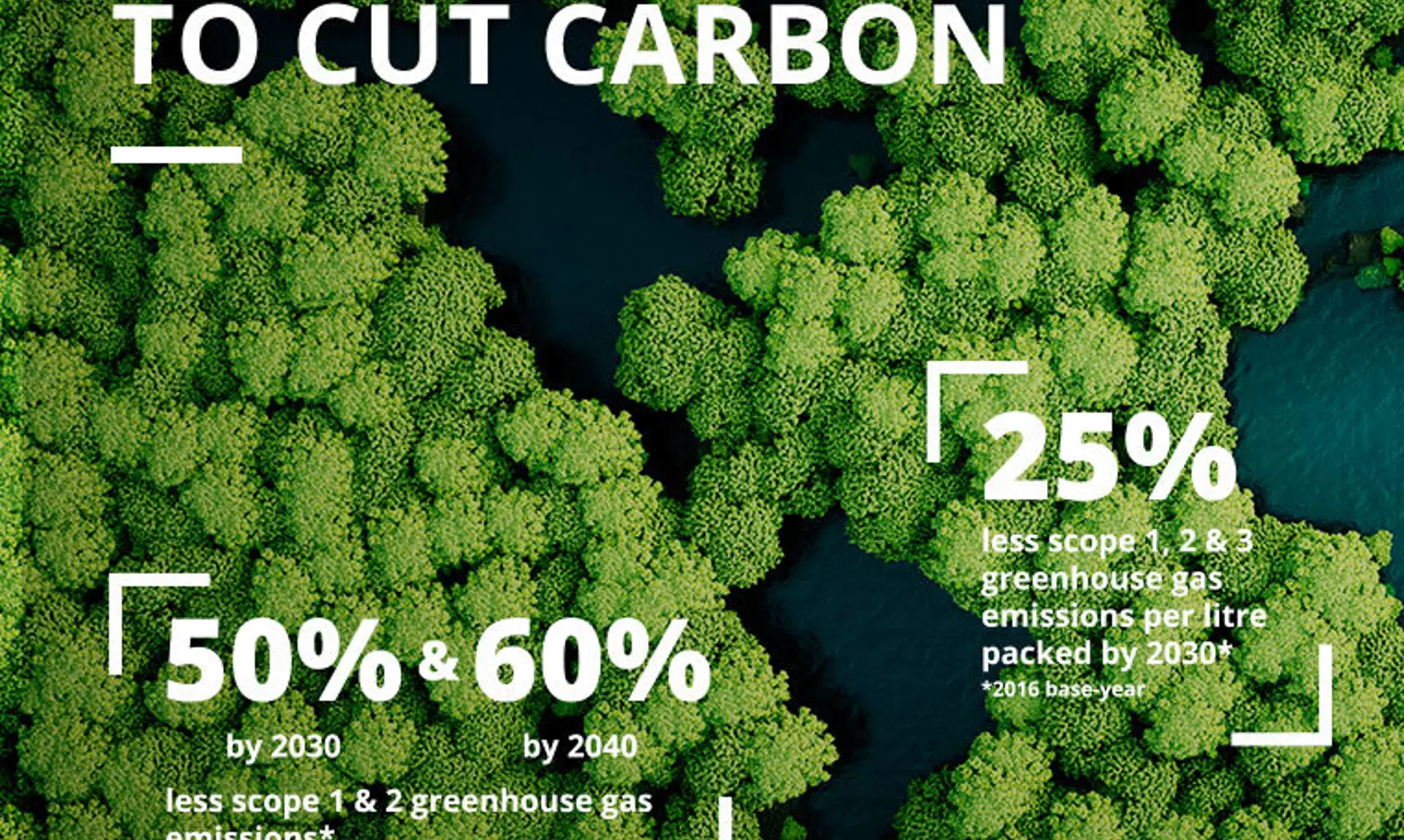SIG announces approval from the Science Based Targets initiative for its greenhouse gas emissions reduction targetsSIG’s targets to reduce greenhouse gas emissions have been approved by the Science Based Targets initiative (SBTi), confirming that the company’s strategy is aligned with what climate science says is required to prevent dangerous global warming.
SIG is one of an elite group – currently around 100 companies worldwide – to have its targets approved by the SBTi, a collaboration between CDP, the United Nations Global Compact, World Resources Institute (WRI) and the World Wide Fund for Nature (WWF).
Climate change is one of the world’s biggest challenges and a concerted global effort is required to keep global warming below 2oC above pre-industrial levels – the point at which experts predict the worst effects will take hold. The SBTi aims to help companies determine how much they must cut their greenhouse gas emissions to do their part and support the aims of the Paris Agreement.
Alexander Liedke, WWF Germany’s Sustainable Business & Markets Manager and member of the Science Based Targets initiative steering committee said:
“By setting a science-based target, SIG is getting ahead in the transition to the new low-carbon economy, and doing their part to tackle climate change. As a packaging company, they play a key role in global supply chains and can support their customers with their own carbon reduction targets – something major purchasers are increasingly prioritizing. We congratulate SIG on being a sustainability leader in their industry.”
Targeting ambitious reductions
SIG has committed to reduce its scope 1 and 2 greenhouse gas emissions 50% by 2030 – and 60% by 2040 – from a 2016 base-year. This includes direct emissions from its own operations (scope 1) and indirect emissions from the generation of purchased energy (scope 2).
The company has also committed to reduce its greenhouse gas emissions per litre packed 25% by 2030 from a 2016 base-year (including scope 1 and 2, as well as scope 3 emissions from purchased goods and services, use of sold products and end-of-life treatment).
SIG chose ‘per litre of food packed’ as the comparator for the value chain metric, rather than revenue or number of packs produced, to better reflect its corporate purpose to get food products to consumers around the world in a safe, sustainable and affordable way – regardless of the size of the pack or the company turnover.
Rolf Stangl, CEO at SIG, said:
“Reducing our greenhouse gas emissions is at the heart of our commitment to halve our value chain environmental impacts and go Way Beyond Good. Receiving validation of our targets from the Science Based Targets initiative confirms that we are on track to support global efforts to tackle climate change. We have a clear roadmap to help us get there and I’m confident that we will achieve these targets by engaging with suppliers and applying our strong engineering capabilities. Doing so will not only help to protect the planet, it will also present new opportunities for our business and help us continue to deliver what our customers need.”
Measuring SIG’s value chain footprint
SIG built on its experience with product lifecycle assessments to develop an inventory of the organisation’s carbon footprint following the Greenhouse Gas Protocol’s Corporate and Value Chain Accounting and Reporting Standards.
A first estimate of total greenhouse gas emissions across the value chain was published in the company’s 2016 Corporate Responsibility Report. Since then, SIG has refined the inventory and recalculated the base-year inventory accordingly. The company has also been exploring potential opportunities to reduce emissions, through a review of its own business activities and dialogue with key suppliers, to develop reduction targets that are both ambitious and achievable.
Jonas Harth, scientist at the Institut für Energie und Umweltforschung (IFEU/Institute for Energy and Environmental Research) said:
“We have been working with the team at SIG for a number of years to develop robust methodologies for assessing the lifecycle environmental impacts of its products in line with recognised standards. SIG has adopted the same rigour in its approach to assessing its carbon footprint across the value chain and setting targets to reduce greenhouse gas emissions.”
The metrics accompanying SIG’s greenhouse gas reduction targets are included in its key performance indicators for measuring progress towards its Way Beyond Good ambitions. Performance will be disclosed annually through the company’s corporate responsibility reporting, alongside other metrics that support SIG’s commitment to go Way Beyond Good by contributing more to society and the environment than it takes out.
About SIG
SIG is a leading systems and solutions provider for aseptic packaging. We work in partnership with our customers to bring food products to consumers around the world in a safe, sustainable and affordable way. Our unique technology and outstanding innovation capacity enable us to provide our customers with end-to-end solutions for differentiated products, smarter factories and connected packs, all to address the ever-changing needs of consumers.
Founded 1853, SIG is headquartered in Neuhausen, Switzerland. The skills and experience of our 5,000-plus employees worldwide enable us to respond quickly and effectively to the needs of our customers in more than 65 countries. In 2017, SIG produced 33.6 billion carton packs and generated €1.66 billion in revenue. For more information, visit www.sig.biz
SIG has committed to reduce its scope 1 and 2 greenhouse gas emissions 50% by 2030 – and 60% by 2040 – from a 2016 base-year. This includes direct emissions from its own operations (scope 1) and indirect emissions from the generation of purchased energy (scope 2).
The company has also committed to reduce its greenhouse gas emissions per litre packed 25% by 2030 from a 2016 base-year (including scope 1 and 2, as well as scope 3 emissions from purchased goods and services, use of sold products and end-of-life treatment).

SIG announces approval from the science based targets initiative for its greenhouse gas emissions reduction targets
